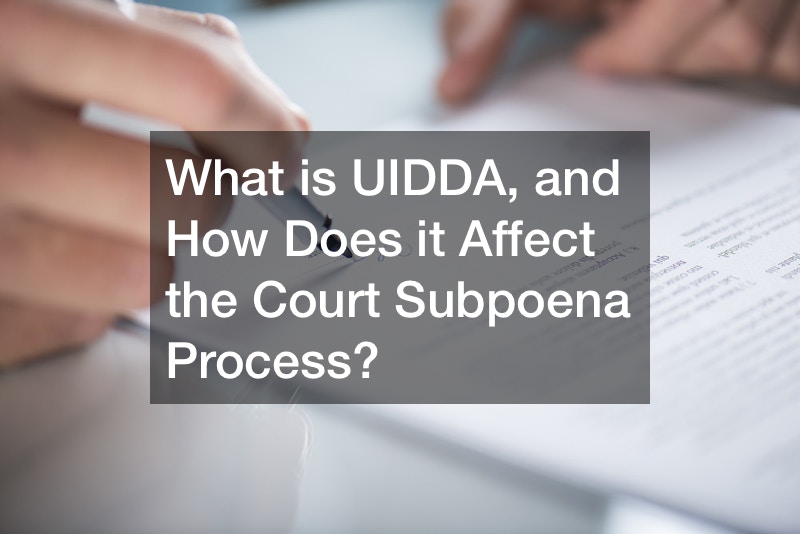
Introduction
In the realm of legal proceedings, subpoenas play a crucial role in obtaining information and documents relevant to a case. However, the process can become intricate when crossing state lines, prompting the need for a unified framework. This is where the Uniform Interstate Depositions and Discovery Act ( UIDDA) steps in, providing a standardized approach to the court subpoena process.
The Challenge of Interstate Subpoenas
In litigation and real estate arbitration, the requirement for information or documents often extends beyond the borders of a single state.
Traditional subpoena procedures become complex and cumbersome when dealing with out-of-state entities, demanding a more streamlined and uniform process.
UIDDA: An Overview
The UIDDA, enacted by various states to facilitate interstate legal proceedings, serves as a solution to the challenges posed by cross-border subpoenas. Its primary goal is to simplify and standardize the process of issuing, serving, and enforcing subpoenas across jurisdictions.
The Scope of UIDDA
UIDDA allows attorneys and litigators to issue out-of-state subpoenas with greater ease and efficiency. It covers not only traditional subpoenas for testimony but also subpoenas for the production of documents, electronically stored information (ESI), and tangible items.
The Importance of UIDDA in Real Estate Cases
Real estate cases often involve parties and documents located in different states. UIDDA streamlines the subpoena process in such cases, ensuring that information critical to the proceedings can be obtained without undue complications.
UIDDA’s Impact on Obtaining Records
One of UIDDA’s key features is its emphasis on recognizing the authority of the courts in different states. This allows a party involved in a legal matter to directly approach the court where the action is pending to issue a subpoena, bypassing the need for auxiliary proceedings.
Serving Subpoenas Under UIDDA
UIDDA facilitates the service of subpoenas by authorizing individuals to serve them in the state where the recipient is located. This eliminates the need to involve local counsel or resort to more time-consuming methods, streamlining the overall process.
Objections and Protections Under UIDDA
Parties receiving subpoenas under UIDDA still retain the right to object, raising concerns such as privilege or relevance. This ensures that the streamlined process does not infringe upon the rights of the parties involved. Additionally, UIDDA allows for the protection of confidential or proprietary information, maintaining a balance between efficiency and the preservation of legal safeguards.
Collaboration and Negotiation
UIDDA encourages parties to collaborate and negotiate regarding the terms of compliance with a subpoena. This flexibility promotes an environment where parties can work together to ensure that the information is obtained while respecting the legal rights and protections in place.
Conclusion
UIDDA stands as a significant development in the legal landscape, providing a standardized and efficient approach to the court subpoena process, particularly in cases involving multiple jurisdictions. By simplifying the issuance, service, and enforcement of subpoenas across state lines, UIDDA contributes to the fair and expedient resolution of legal matters, making it an invaluable tool for attorneys and litigators navigating the complex web of interstate litigation and real estate arbitration.
.





